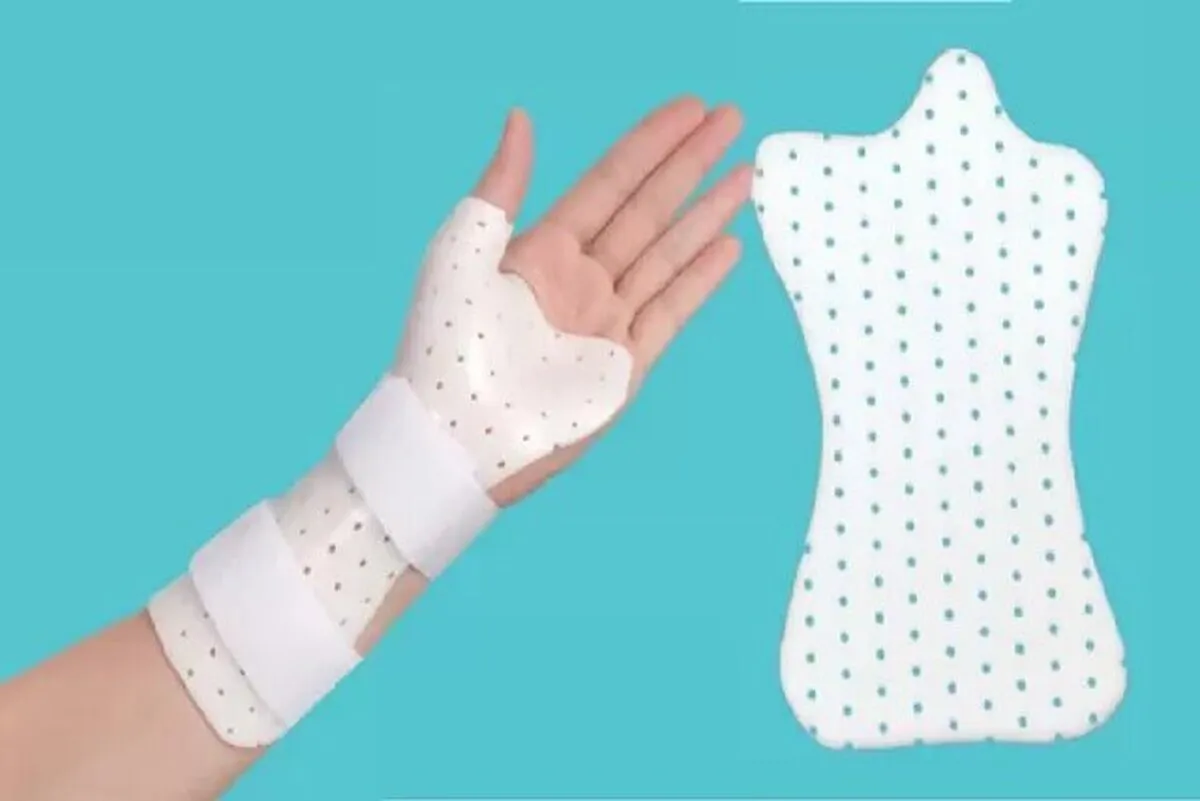Iran-Made Flexible, Smart Splints Able to Harden in 5 Minutes

“Thermoplastic or thermofit splints are a good alternative to common traditional splints since these smart splints become soft at 56 degrees Celsius in warm to hot water and take the shape of the injured part,” said Nima Hashemi, the managing director of the company.
Noting that the splint is hardened in less than five minutes, he stated, “It is flexible, light and portable, and requires little time for use.”
Hashemi said that the capability for customization, high comfort, compatibility with the body and sterilization by the UV are other advantages of this product.
This splint has also been made in a porous form for the skin to breathe and has a thickness of 3.2 mm, he said, adding that the product can be used for upper and lower limbs.
“The thermoplastic splints produced in our company are biocompatible and can be placed directly on the body and do not harm the body even in case of wounds or burns,” Hashemi said.
In a relevant development in July, Iranian scientists at Amirkabir University of Technology had also succeeded in production of biodegradable bone stabilizers with application in screws, pins and plates used in orthopedic surgeries.
“Biodegradable metals provide the necessary structural support to the host tissue, degrade gradually within the body, and then disappear completely after completing their task of aiding tissue repair,” said Somayyeh Abazari Sivandi, a PhD student at the faculty of materials engineering of Amirkabir University of Technology and manager of the project.
She noted that magnesium alloys can be used in the physiological environment of the body due to their good biocompatibility, excellent biodegradability and bone formation ability.
“The production of magnesium composite screws and pins reinforced with nanographene compounds for the repair of broken bones eliminates the need for secondary surgery to remove the implant from the body after repairing the damaged tissue and reduces the patient's anxiety and stress and bone infections during operation,” Abazari Sivandi said.
4155/v





















